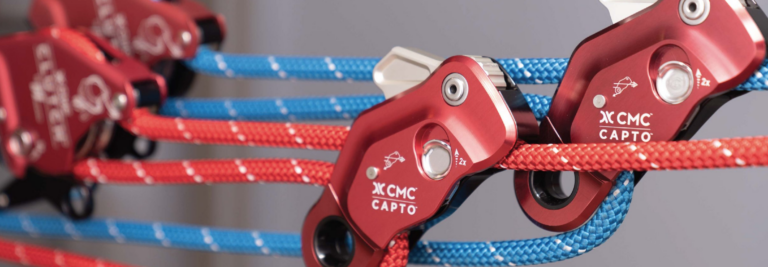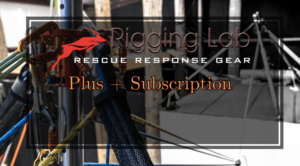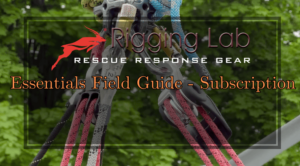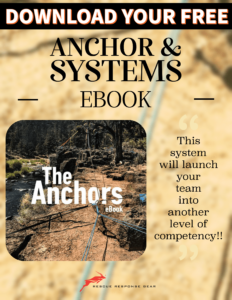Mechanical Ascenders vs. Prusik Knots
When constructing rope rescue systems, particularly those involving 3:1 mechanical advantage setups, rescuers often choose between mechanical devices like the Petzl Rescucender or CMC Capto and the versatile Prusik Knot. Each has distinct advantages and limitations, and the choice depends on the specific demands of the operation. Let’s explore these devices in depth, comparing their performance in a 3:1 system and broader applications.
1. Overview of the Devices
Petzl Rescucender
The Petzl Rescucender is a mechanical rope grab designed for hauling systems, progress capture, and backup.
- Features:
- One-way rope movement with secure locking under load.
- Easy integration into systems like the 3:1 Z-rig.
- Durable construction for high-load environments.
- Performance:
- Optimized for smooth hauling with minimal friction.
- Suitable for professional applications in rescue, climbing, and industrial rope access.
For more insights, explore:
Mechanical Ascenders for Rope Rescue Systems
CMC Capto
The CMC Capto combines a rope grab and progress capture device, providing versatility in complex systems.
- Features:
- Compact, lightweight design.
- Dual certification for rescue and industrial applications.
- Efficient locking mechanism for consistent operation.
- Performance:
- Excellent for rope management in mechanical advantage systems.
- Can function as both a rope clamp and a belay device in some configurations.
Learn more:
CMC Capto vs. Prusik Comparison
Prusik Knot
The Prusik Knot is a traditional friction hitch widely used in rope rescue and climbing.
- Features:
- Lightweight and versatile.
- Requires no specialized equipment other than accessory cord.
- Reliable in dirty, wet, or icy conditions.
- Performance:
- Offers high versatility but introduces more friction than mechanical devices.
- Ideal for minimalist setups or when specialized gear isn’t available.
Discover more about the Prusik Knot:
Prusik Knots in Technical Rope Systems
2. Comparing Devices in a 3:1 System
| Feature | Petzl Rescucender | CMC Capto | Prusik Knot |
|---|---|---|---|
| Efficiency | High, minimal friction | High, smooth operation | Moderate, more friction |
| Ease of Use | One-handed operation | Compact, intuitive design | Requires manual adjustment |
| Weight and Portability | Lightweight, but device needed | Very lightweight | Most compact, no extra gear |
| Durability | Built for heavy loads | Robust and versatile | Dependent on cord material |
| Cost | High | Moderate | Minimal |
| Versatility | Specialized for rope systems | Multi-purpose | High, can be used in many setups |
For more comparisons:
Friction Hitches and Mechanical Advantage in Rope Rescue
3. Practical Considerations for Each Device
When to Use the Petzl Rescucender
- Ideal For:
- High-efficiency hauling systems where speed and smooth operation are critical.
- Professional environments with access to specialized equipment.
- Limitations:
- Higher cost and reliance on proper training for safe operation.
When to Use the CMC Capto
- Ideal For:
- Versatile setups requiring a dual-purpose device.
- Teams needing lightweight, multipurpose tools.
- Limitations:
- Less friction management than dedicated devices like the Rescucender.
When to Use the Prusik Knot
- Ideal For:
- Minimalist rescues or environments with dirty or icy ropes.
- Situations where lightweight and low-cost options are preferred.
- Limitations:
- Higher friction and slower operation compared to mechanical devices.
Explore detailed gear reviews:
Rescue Systems Gear Analysis
4. Friction Considerations in 3:1 Systems
Both mechanical devices and the Prusik Knot face challenges in real-world conditions, particularly with friction at critical points:
- Rescucender and Capto: Mechanical devices reduce friction significantly, ensuring smoother operation but can be affected by rope contamination.
- Prusik Knot: While reliable in adverse conditions, the added friction reduces overall system efficiency, requiring more effort to achieve the same mechanical advantage.
For an in-depth look at friction in rescue systems:
Understanding Friction in Mechanical Advantage Systems
5. Choosing the Right Tool for the Job
The choice between the Petzl Rescucender, CMC Capto, and Prusik Knot depends on specific operational needs:
- For speed and efficiency, choose the Rescucender.
- For versatility and compact design, opt for the CMC Capto.
- For reliability in rugged conditions, rely on the Prusik Knot.
Conclusion
When comparing the Petzl Rescucender, CMC Capto, and Prusik Knot, each has its strengths and ideal use cases. The Rescucender excels in high-demand systems, the Capto offers unmatched versatility, and the Prusik remains a trusted companion for climbers and rescuers worldwide. Understanding the unique benefits and limitations of each tool ensures safe and efficient rope rescue operations.
Peace on your Days
Lance










